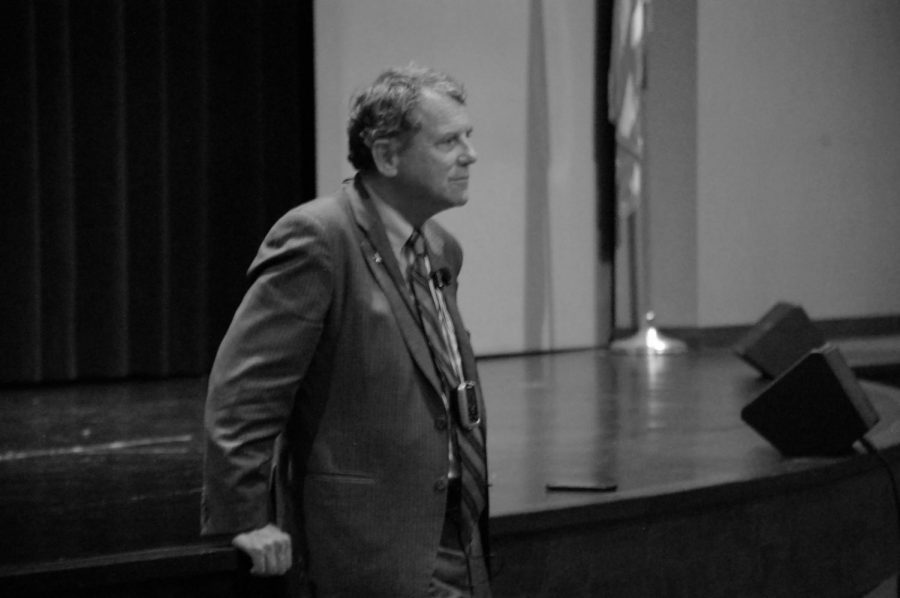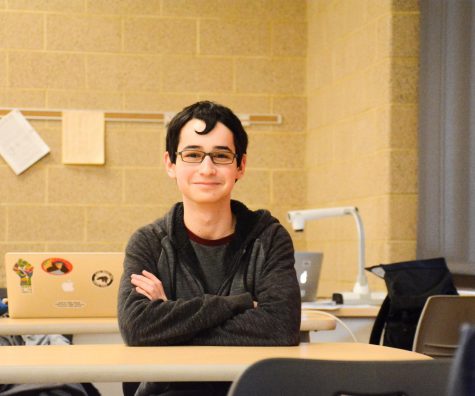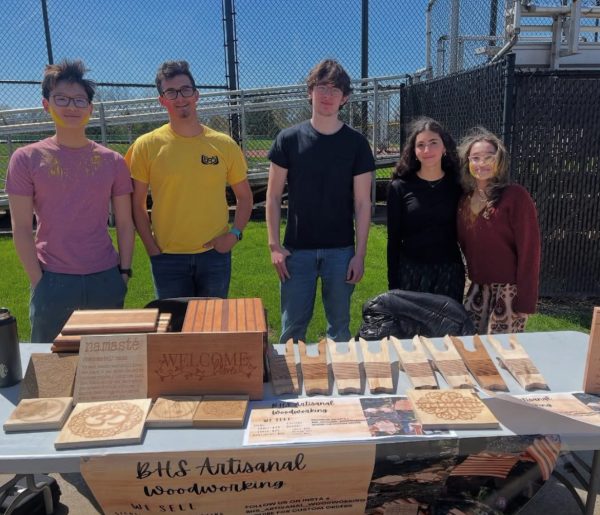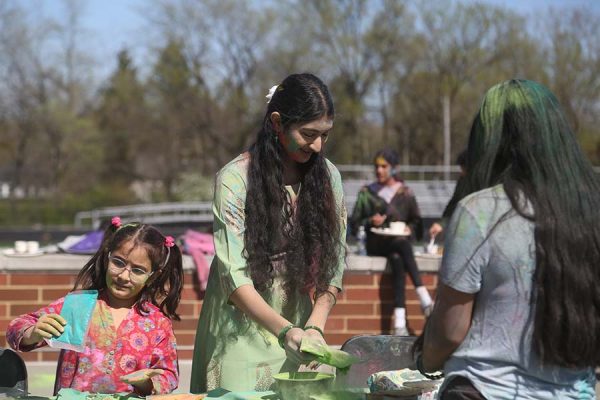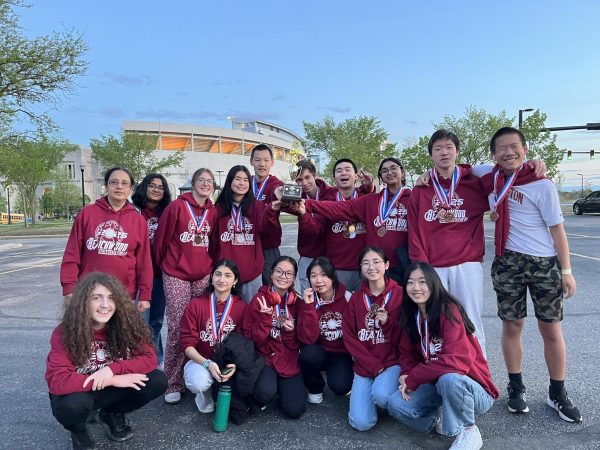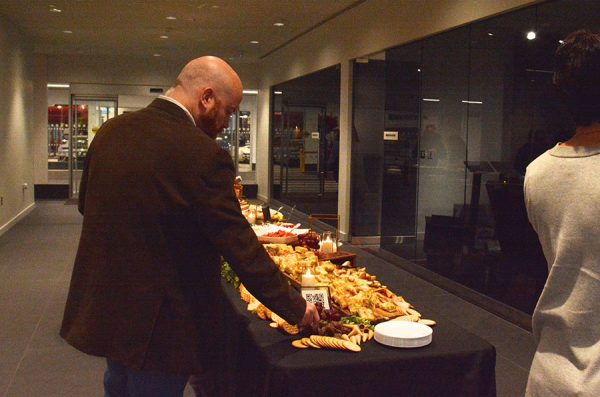Senator Sherrod Brown Speaks With BHS Students
Senator Sherrod Brown answers BHS students’ questions.
United States Senator Sherrod Brown (D-OH) paid a visit to BHS on Friday, Nov. 1 to answer students’ questions about life in the Senate.
Government students went to the auditorium during 10th period for an in-school field trip, where they were joined by social studies teachers Dominic Velotta and Pam Ogilvy, Assistant Principal Ryan Patti, Principal Paul Chase and several other faculty members.
School Board members Josh Mintz, Dr. Brian Weiss, Megan Walsh and Maria Bennett also attended the event.
Prior to the visit, students in Government classes were given the opportunity to submit questions to ask the senator directly.
Following a short introduction by junior Samuel Horowitz, Senator Brown began with brief introductory remarks extolling the advancement of education standards, worker protections and civil rights in the past few decades.
“What drives me,” said Senator Brown, referring to these achievements, “is to move the country forward like that.”
The floor was then opened to students for questions. Over the next 45 minutes, the senator answered questions ranging from political to personal.
Addressing senior Nikhil Murali’s question about automation and the manufacturing sector, Senator Brown explained his view that the “dignity of work” has been undermined [for blue collar Americans] by unfavorable trade deals and taxes friendlier to corporations overseas.
The senator then responded to junior Yossi Berkowitz, who asked about the Green New Deal, notably calling the legislation a “lot of talk” and demanding immediate action.
Senator Brown criticized Republicans “who refuse to do anything,” having been bought by the Koch Brothers and fossil fuel interest groups. He also denounced Trump’s decision to pull out of the Paris Agreement as “despicable, frankly.”
Answering later questions, the Senator called police brutality “explicit racism” and acknowledged that racial gentrification is resulting in “segregated housing in far too many places,” Cleveland included.
Brown then affirmed the use of official titles to do good things, bringing up a personal story of eating take-out along with Senators Bernie Sanders, Cory Booker and Chuck Schumer in the Senate lunchroom to protest the cafeteria workers’ meager $10-per-hour wages.
Senator Brown also asserted that Heartbeat bills in Ohio and elsewhere threaten decades’ worth of progress in women’s rights, that the government should be investing more in teachers and less in defense and that healthcare with strong consumer protections is a universal right.
A common theme in his responses was sharp criticism of current President Donald Trump. Senator Brown took every opportunity to condemn Trump, referring to him at various times as “A president that attacks people because of their religion,” that “lies repeatedly every day” and that “divides people”—a “racist” and “sexist” who “doesn’t tell the truth [and] doesn’t rely on people who know things.”
“Everything is upside down [under President Trump],” the senator said in sum.
Three of the 13 questions asked related to the ongoing impeachment inquiry, with regard to which, Senator Brown explained that were he in the House of Representatives, he would vote to pass articles of impeachment based on the available evidence of executive wrongdoing.
However, the senator continued, he would need to hear Trump’s defense prior to voting in a Senate trial. He also clarified that votes on the matter must consider the facts of the case and not popular judgement, as tempting as it may be for elected officials.
The event ended in time for students and staff to attend academy, though some remained for selfies with the senator.
Walsh hailed the event as “democracy at work.” Velotta had emphasized the singularity of a senatorial visit to his government classes on several occasions leading up the event.
“We thought it would be an awesome opportunity for our students to be able to meet a U.S. Senator (1 out of 100) and ask him questions about his role in government and how it relates to content learned in our AP Government & Government courses,” Velotta wrote in an email.
“I honestly had a pretty good experience,” junior Somin Jung said. “I personally enjoyed the effort [Senator Brown] put into being relatable with our generation. He thoroughly answered everyone’s questions, and I could see that he really cared, even if it was a visit to a high school.”
Junior Tal Rothberg also enjoyed the unique opportunity of hearing the senator speak.
“[I appreciated] how he shared his political views, and wasn’t afraid to speak out,” she said.
Horowitz, who introduced Senator Brown at the assembly, helped coordinate the visit. He explained that his step-mother had worked with Brown in his early 2000s campaign, developing a “family relationship” through which he hoped to afford classmates the opportunity to meet the senator. Brown was open and receptive to the idea, according to Horowitz.
“[Horowitz] came to me in September and asked if I would be interested in having Senator Brown come in and talk to [students in Government classes],” Velotta continued. “It took a couple of weeks to work through the logistics between Senator Brown’s office and our administration.”



